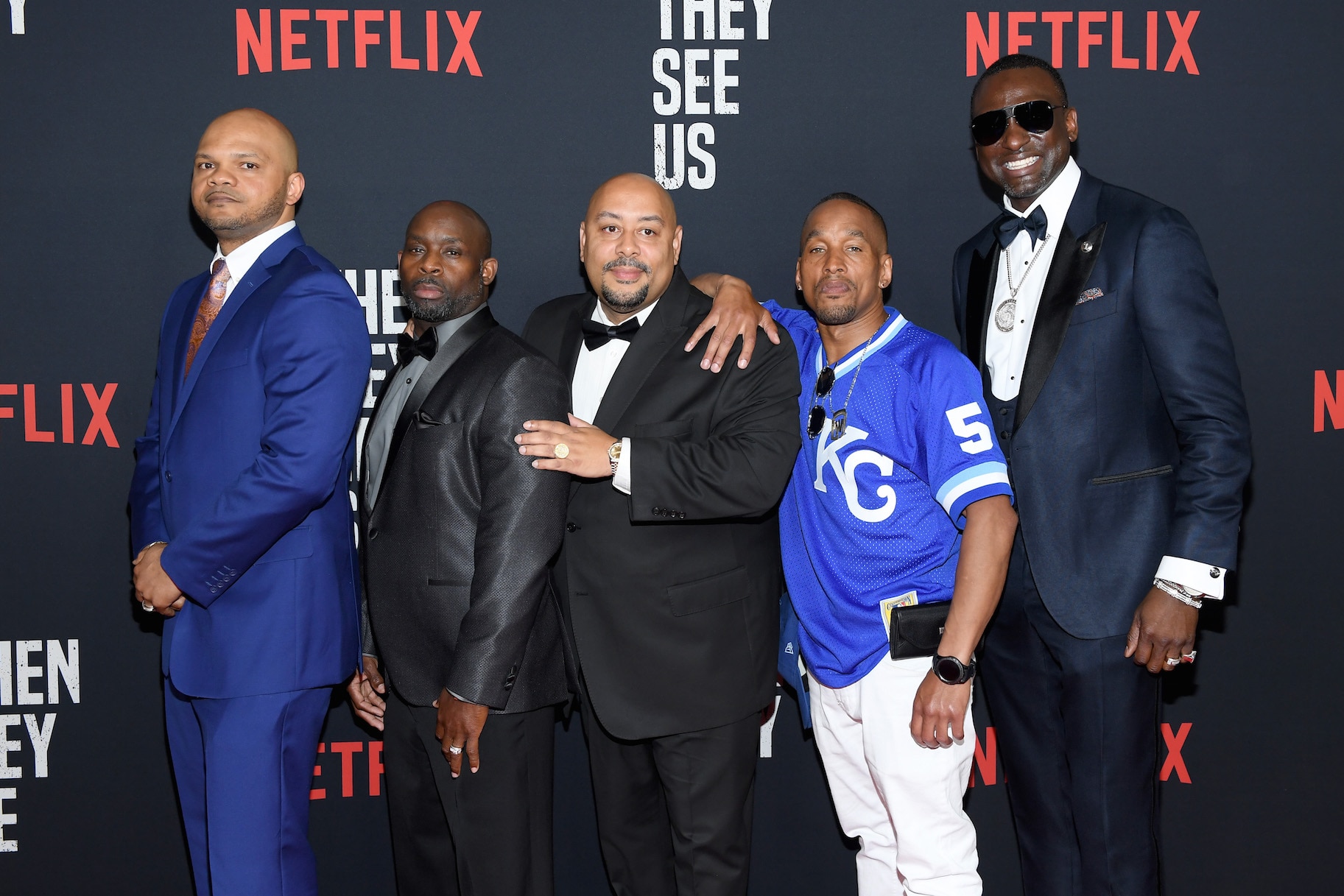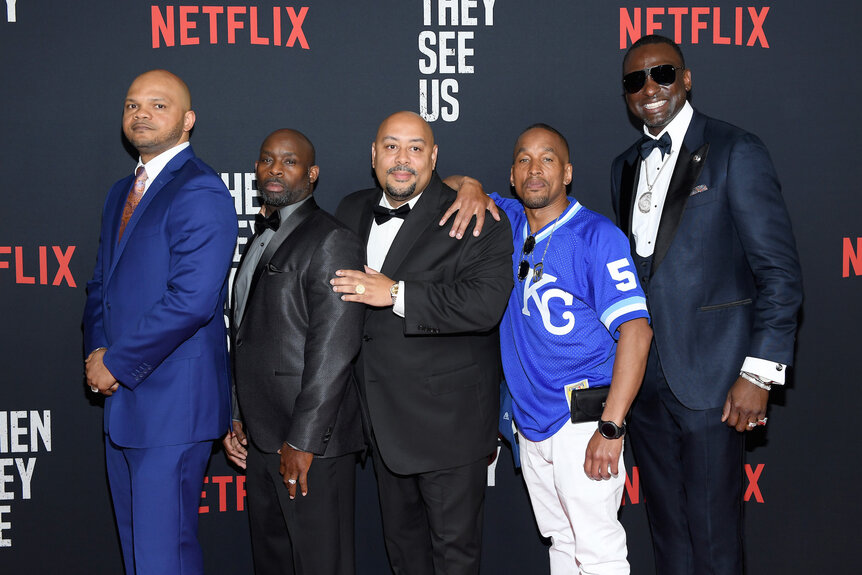Create a free profile to get unlimited access to exclusive videos, breaking news, sweepstakes, and more!
What Is 'Wilding' And What Does It Have To Do With The Central Park 5?
Debate around what the phrase "wilding" meant — and if it ever referred to anything at all — continues to this day.

The controversy surrounding the so-called Central Park 5, a group of teenagers wrongfully accused of attacking and raping a woman on April 19 of 1989, has sparked endless discussion on the topics of race, policing, and criminal justice in America. Despite their exonerations and thorough DNA testing which has identified the actual perpetrator, the facts of the case remain disputed to this day. How this group of innocent kids were blamed for the crime is precisely the question behind Ava Duvarney's latest series, "When They See Us," which recently debuted on Netflix.
One of the most bizarre elements of the original conception of the crime was the accusation that some teens who assaulted several people the same night Trisha Meili was raped were "wilding" — but what exactly "wilding" is or was remains somewhat unclear to this day.
According to a New York Times article published two days after the attack on Meili, at least 9 individuals were victims of a group of "32 schoolboys" who "terrorized" the Central Park area without a motive. The squad, which had split into smaller sub-groups after spotting police cars, physically assaulted several unidentified individuals and threw rocks at passing cars. Because the cabal of kids weren't on drugs, didn't rob anyone of their belongings, and were apparently not motivated by hatred, police believed they were participating in a pastime called "wilding."
''It's not a term that we in the police had heard before,'' said Chief of Detectives Robert Colangelo at the time, noting that the police were unaware of any similar incidents in the park recently. ''They just said, 'We were going wilding.' In my mind at this point, it implies that they were going to go raise hell.''
''It's very difficult to explain,'' Colangelo continued. ''I think they were a group of kids who lived relatively close together, who hung out together, and I think on Wednesday night they said, 'Let's raise a little hell, go into the park and assault and harass joggers and bicyclists.'"
Reports have since indicated that the NYPD had actually misunderstood the suspects. A 2002 report from The National Review indicates that officers had overheard the teenagers singing the lyrics to Tone Loc's popular track, "Wild Thing" while they were in holding cells but couldn't understand the context, thus spawning the neologism.
A different account of the word suggests that it had actually been in use long before the Central Park 5 incident. In her book, "The Central Park Five," writer Sarah Burns states that "wilding" had previously been used as “street slang for acting crazy, although it didn’t necessarily have violent connotations.”
Political analysts have since scrutinized the way the phrase was used to stoke racial fears about black and hispanic youths and may have played a factor in the trial of the five 14- to 16-year-old children accused or raping Meili.
"The cultural panic engendered by wilding measurably contributed to the verdicts," writes Stephen Mexal, an English professor at California State University, in an article titled “The Roots of ‘Wildin’: Black Literary Naturalism, the Language of Wilderness, and Hip Hop in the Central Park Jogger Rape."
"The Central Park Jogger rape began as a horrific crime but became a multivalent spectacle in part because of an interpretive failure on the part of the broader public: an inability to read the word wilding critically, as a part of an ironic discourse interrogating the primacy of white civilization," says Mexal.
"Wilding" has certainly since become a common colloquialism for acting crazy or excited in a playful manner, as per Nick Cannon’s former MTV series "Wild N Out," postulates Mexal.
“I suspect the word ‘wilding’ made many people remember about actual wilderness, violent and uncontrollable,” Mexal added, according to Grist, an independent news outlet. “Now, every right-thinking person knows that a 14-year old boy from New York is not a wild tiger. But for seemingly an entire city and maybe an entire country, that simple fact suddenly became very hard to remember one night in 1989.”
The fear of "wilding" has since been compared to the moral panic around fabled youth trends like the so-called "knockout game," a supposed fad in 2013 which urban youths allegedly challenged each other to punch out strangers.
"You could find instances that fit either description, but in a country with tens of millions of teenagers, where you could find examples of almost any behavior, you need more than a few anecdotes to prove a trend," wrote political analyst Jamelle Bouie for The Daily Beast. "But the question isn’t whether these random assaults happen. Of course they do. The question is whether this is a new dimension of urban crime, or a new name for an old phenomenon. Most of the evidence points to the latter."
"Race is an obvious element in all of this," Bouie continues. "In almost every report, the assailants are described as young black men, and many of the victims have been white. It’s hard not to see the sensationalized coverage of 'knockout'—and before that, 'wilding'—as a reflection of our national fear of young black men. Indeed, in the more sinister corners of the Internet, you can find people who argue that these incidents are the opening shots in a 'race war' by 'feral black youth.'"
Death and Taxes analyst Robyn Pennacchia went as far as describing both "wilding" and the "knockout game" as media fabrications.
"There was no such real trend as 'wilding,'" Pennacchia wrote in Business Insider. "It was all made up-but easily accepted by a society conditioned to see young black men as criminals rather than people."
























